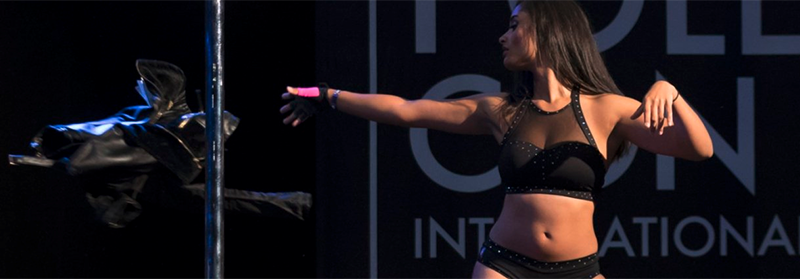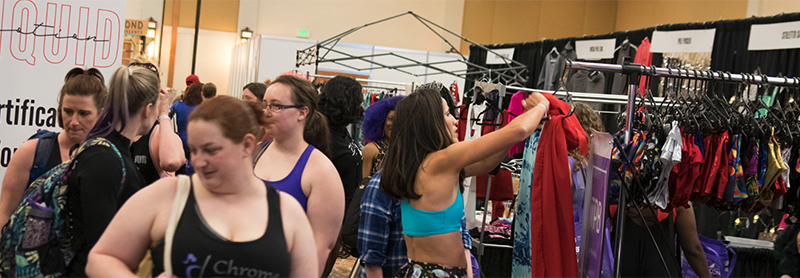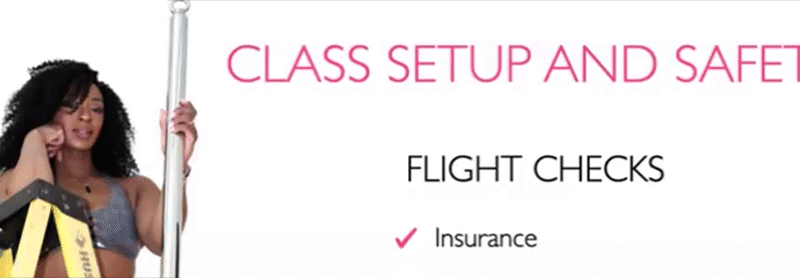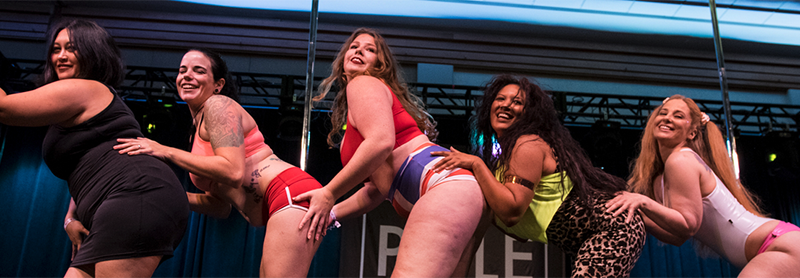A train-cation is a trip (usually away from home) where you focus for a specific…

How to disclose (or not) your pole career with your day job
Many pole instructors, performers, studio owners, strippers, and other pole business owners may maintain a primary “day job” and work their pole-related side hustle at the same time.
While some specific careers or employees may require disclosure of other/outside employment, most do not.
Pole-related professionals who are not strippers/sex workers have reported negative reactions in the past to disclosures of their pole-related employment. One 2018 incident that received country-wide attention was of a North Carolina middle school teacher and pole instructor was suspended for posting her pole dancing online.
Strippers/sex workers are typically at a greater risk for negative reactions and have shared stories about losing custody of their children or experiencing other punitive legal and financial consequences of having their pole-related work exposed publicly.
Please note: This is a very sensitive topic and should be handled with care and within the specific details of your situation. Read the rest of this information and make your own decision on how to handle discussions with your employer if you choose to—or are require to—have them.
Option 1: Don’t tell them
Generally, employers have no say in what you do outside of working hours for their business. Potential exceptions might be:
- If your performance outside of your day job work impacts your at work hours.
- If your performance outside of your day job work negatively reflects on your employers’ business.
- If your outside of day job work business is in direct competition with your day job or if you are taking clients from your day job (typically you would have also signed a non-compete agreement).
- If something you did outside of day job work was legal or illegal.
Because pole generates often extreme reactions amongst non-polers, to protect the most amount of people, we currently recommend that you do not disclose your pole-related work to any employers.
Laws vary between municipalities (countries, states, local) and certain careers like law enforcement, military, and government may have different additional restrictions. Make sure you read your contracts very carefully and familiarize yourself with any human resource (HR) regulations in place at your day job.
While it can be quite common for employees or even supervisors/bosses to follow each other on social media and create friendships, consider having separate social media accounts and using a pseudonym or pole name when doing pole-related activities such as performing or competing to minimize potential exposure.
Option 2: Tell them
If you are required to tell your employer about your side hustles or if you believe that telling your employer about your pole work is something you want to do or somehow relevant to your non-pole work life, do the following first:
- Research the laws in your municipality about disclosure to employers and employee protections around discrimination. Laws change all the time.
- Research the policies at your company. Read everything in the employee handbook and make discreet questions about “conflicts of interest” issues to help you prepare your pole work disclosure appropriately.
- Be prepared to explain why you pole and how you pole. Note, that these questions may be asked in inappropriate or inconsiderate ways (check out this post on how not to slut shame strippers when talking to the media which has relevance in this case too)
Once you’ve done all your research and preparation, schedule time to talk to your boss or supervisor. Depending on your relationship with them, this may be informal or formal. Do what feels right and appropriate for your situation.
If something goes poorly, consider engaging with an employment lawyer.
If you are a seasoned pole business professional who is looking for a new job, you may consider being completely upfront with any potential new day job employer during the hiring process. This can help avoid potential future issues.
Option 3: Sorta tell them
If your work requires disclosure of outside work employment but you are concerned about how your day job will react about your pole related work, consider telling them that you are a dance teacher, a fitness teacher, a performer, a dance or fitness studio owner, or that you have an online business.
This option rests heavily on the idea of technicalities. If you need to disclose, you do, but you do so in a way that is as generic as possible.
It is the IPIA’s sincerest hope that everyone will be able to proudly talk about how they pole for business and for pleasure in every part of their life. However, we know that is not always the case. Educate yourself and protect yourself.
Please note, while this post addresses concerns, there is also a large culture of “prestige” from pole dancers who perform with mainstream musical acts.
Have you had to be “out” at your day job? How did that go? Share with us any tips that could help others navigate this tricky situation.



